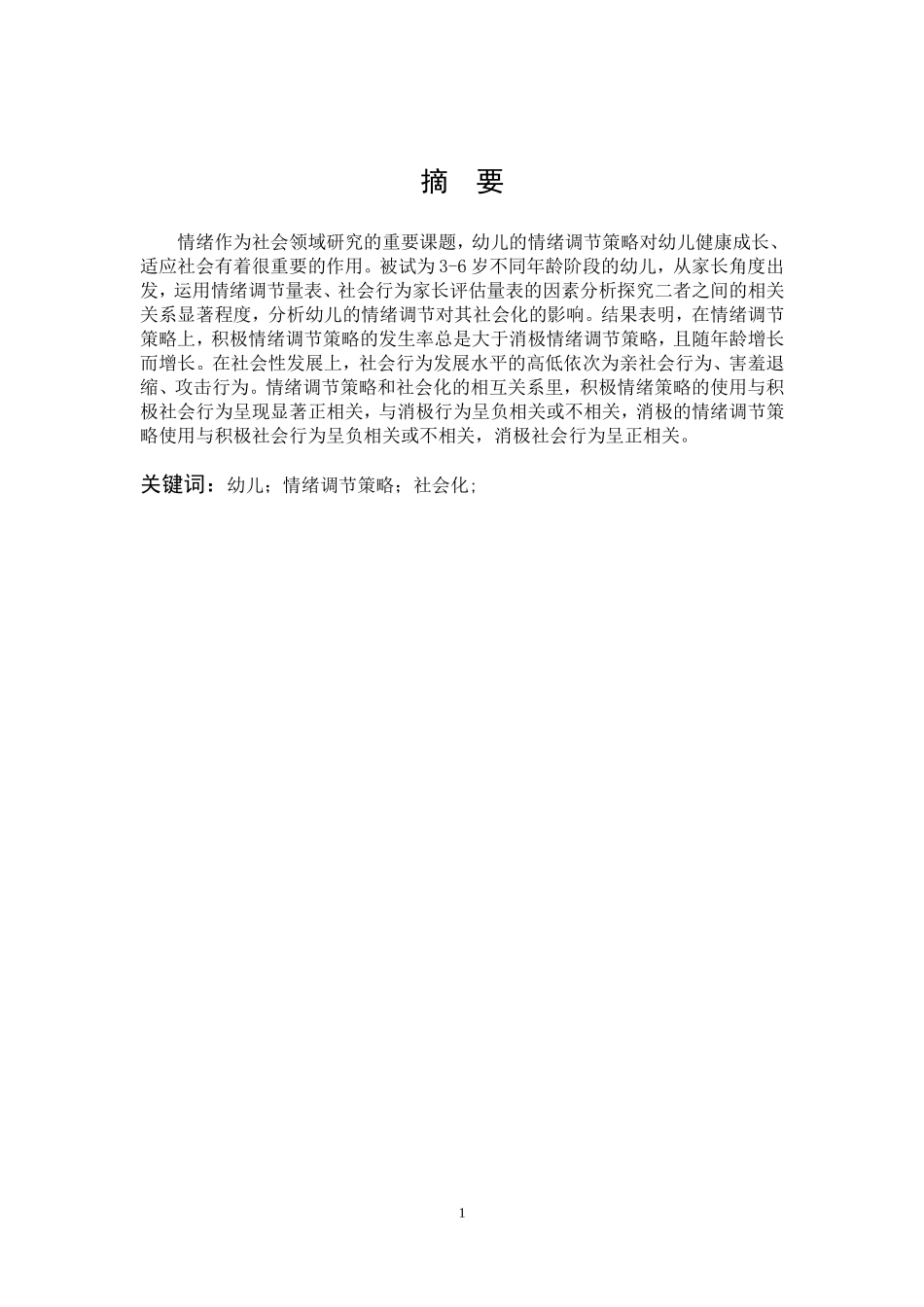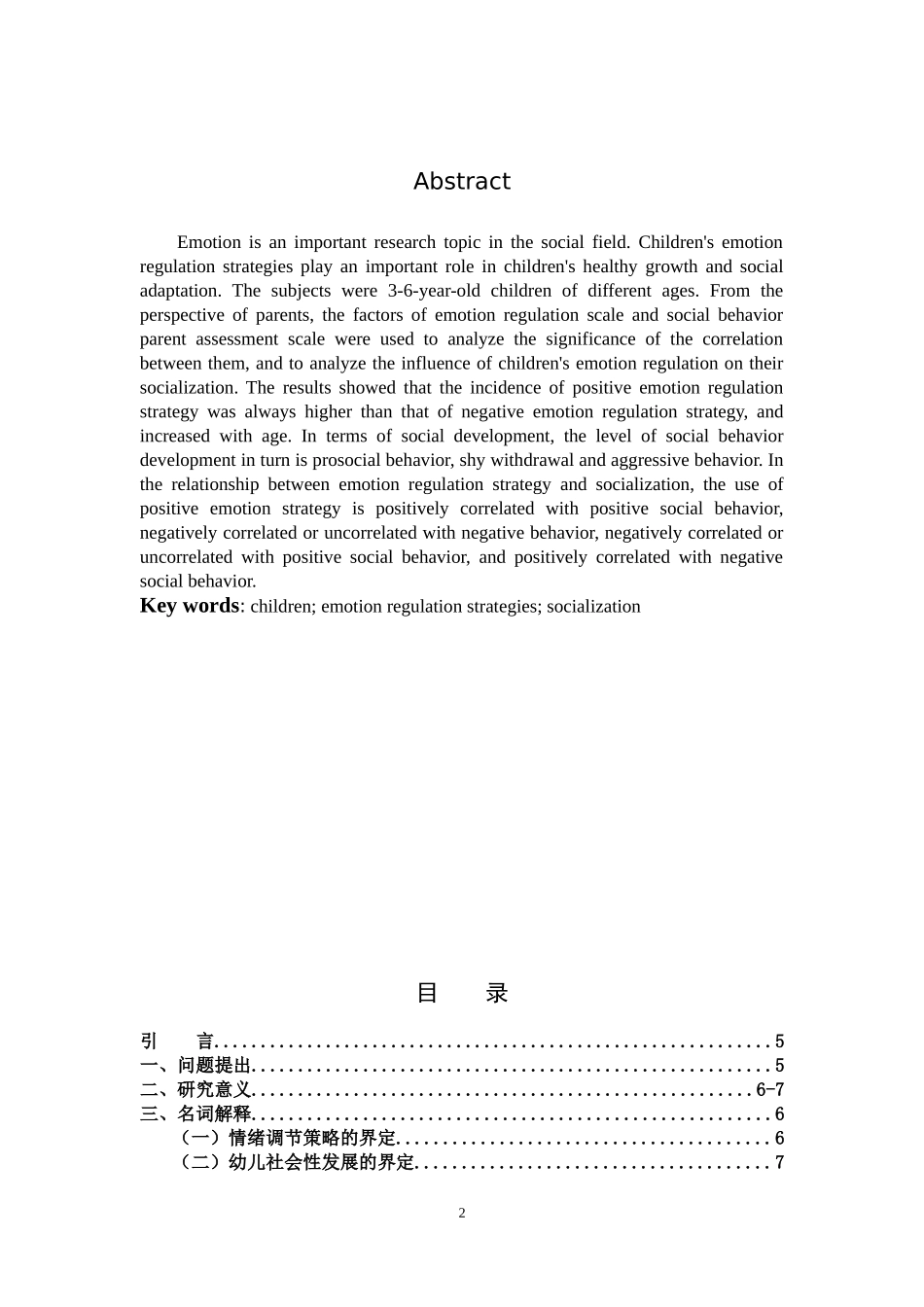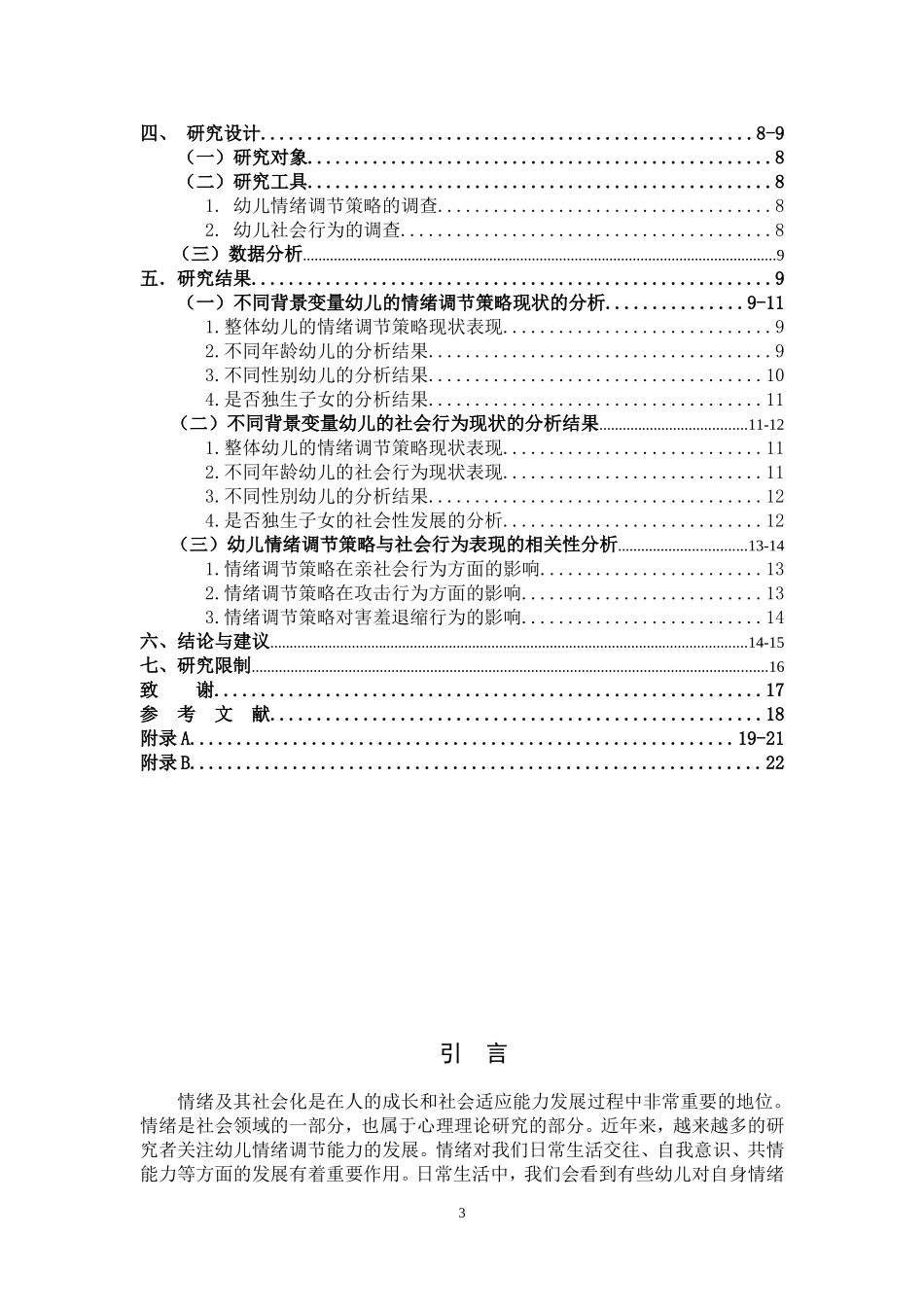摘 要情绪作为社会领域研究的重要课题,幼儿的情绪调节策略对幼儿健康成长、适应社会有着很重要的作用。被试为 3-6 岁不同年龄阶段的幼儿,从家长角度出发,运用情绪调节量表、社会行为家长评估量表的因素分析探究二者之间的相关关系显著程度,分析幼儿的情绪调节对其社会化的影响。结果表明,在情绪调节策略上,积极情绪调节策略的发生率总是大于消极情绪调节策略,且随年龄增长而增长。在社会性发展上,社会行为发展水平的高低依次为亲社会行为、害羞退缩、攻击行为。情绪调节策略和社会化的相互关系里,积极情绪策略的使用与积极社会行为呈现显著正相关,与消极行为呈负相关或不相关,消极的情绪调节策略使用与积极社会行为呈负相关或不相关,消极社会行为呈正相关。关键词:幼儿;情绪调节策略;社会化;1AbstractEmotion is an important research topic in the social field. Children's emotion regulation strategies play an important role in children's healthy growth and social adaptation. The subjects were 3-6-year-old children of different ages. From the perspective of parents, the factors of emotion regulation scale and social behavior parent assessment scale were used to analyze the significance of the correlation between them, and to analyze the influence of children's emotion regulation on their socialization. The results showed that the incidence of positive emotion regulation strategy was always higher than that of negative emotion regulation strategy, and increased with age. In terms of social development, the level of social behavior development in turn is prosocial behavior, shy withdrawal and aggressive behavior. In the relationship between emotion regulation strategy and socialization, the use of positive emotion strategy is positively correlated with positive social behavior, negatively correlated or uncorrelated with negative behavior, negatively correlated or uncorrelated with positive social behavior, and positively correlated with negative soci...


